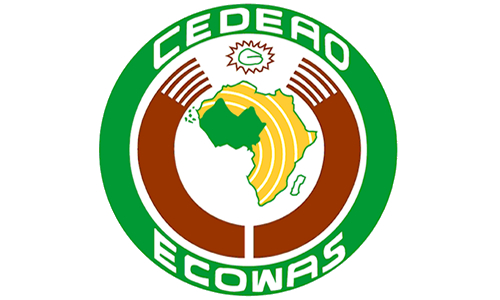
ECOWAS Bank for Investment and Development (EBID) has unveiled its flagship initiative dubbed the “2024 ECOWAS Investment Forum” at a media launch at its headquarters in Lome, Togo, on Wednesday.
The ECOWAS Investment Forum (EIF), which is being organised by EBID under the auspices of the governments of Togo and India, is slated for April 4 and 5 in the Togolese capital would be under the theme, “Transforming ECOWAS Communities in a Challenging Environment.”
Dr George Agyekum Donkor, President of EBID disclosed that the aim of the media launch was to solicit support from the media in bringing the initiative to the front burner towards making the Forum a success.
He said the event is anticipated to provide a strategic platform for development partners and stakeholders operating in the sub-region to connect and promote investment opportunities in key sectors of ECOWAS Member States, with a focus on stimulating shared prosperity and poverty eradication in the sub-region.
“The 2024 EIF will showcase the high investment potential of West Africa, present a pipeline of development projects and programmes from the private and public sectors, as well as facilitate pertinent investment partnerships and conversations.
The Forum is expected to Create opportunities for relevant and tangible investment partnerships and dialogues, present a pipeline of development projects and programmes from various key sectors, namely, agriculture and food security, support to SMEs and SMIs, infrastructure, and energy targeted at addressing the infrastructural gap in the subregion, which is estimated at about $3 billion each Year,” the EBID President indicated.
Experts would congregate to address critical issues related to food security and infrastructure development, incorporating climate change mitigation measures and sustainable development.
Together with stakeholders, we will share best practices and commit to actions that drive inclusive and sustainable economic growth, investment in human capital, and building resilience to global challenges for the ECOWAS Member States.
Dr Donkor reaffirmed EBID’s commitment to promoting an integrated, inclusive, sustainable, and resilient ECOWAS by supporting projects and programmes with a
developmental impact, both in the private and public sectors.
“We look forward to productive sessions and discussions as well as mutually beneficial outcomes from our deal rooms where projects ripe for investment will be showcased.”
Dr Donkor expressed gratitude to Madam Nialé Kaba, Minister for Economy, Planning and Development of the Republic of Côte d’Ivoire and Chairperson of the Board of Governors of EBID, and Mr Sani Yaya, Minister for Economy, and Finance of the Republic of Togo and Governor of EBID for their continued support and guidance.
Mr Yaya, Minister for Economy, and Finance of the Republic of Togo and Governor of EBID said Togo’s commitment to the development of the EBID reflects its quest for regional integration, which is a catalyst for sustainable development.
He said the Forum would explore potentials of member states and share insights to drive sustainable development.
He praised the successes chalked by the Bank under the auspices of Dr Donkor and his team for churning sterling performance in the transformation of the subregion.
Madam Kaba, Minister for Economy, Planning and Development of the Republic of Côte d’Ivoire and Chairperson of the Board of Governors of EBID is upbeat the Forum would facilitate investment partnerships with key players operating in the ECOWAS subregion.
Present were Governors and Directors of EBID and representatives of Governments, captains of industry, the private sector and the media partners.
The ECOWAS Bank for Investment and Development (EBID) is the development finance institution of the 15 Member States of the Economic Community of West African States (ECOWAS), which are: Benin, Burkina Faso, Cabo Verde, Côte d’Ivoire, The Gambia, Ghana, Guinea, Guinea-Bissau, Liberia, Mali, Niger, Nigeria, Senegal, Sierra Leone, and Togo.
Its primary activities are structured around Lines of credit, loans to the public and private sectors, equity investments, support to SMEs and SMIs
Innovative and structured financing.
Source: GNA























